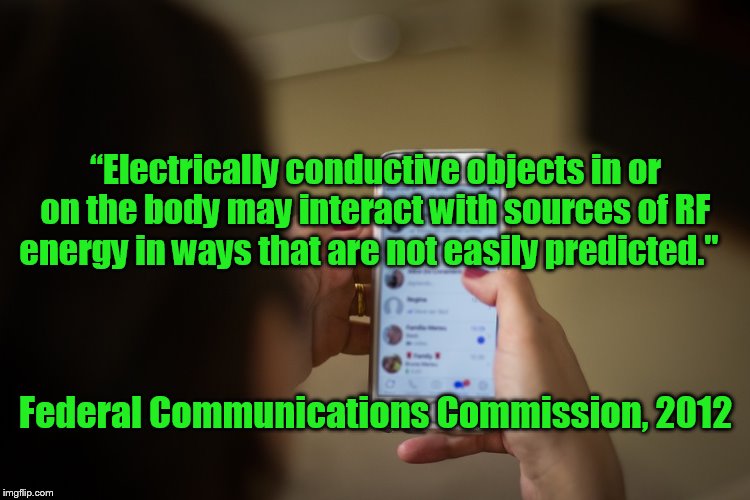Medical Journal Warns iPhone 12 Can Turn Off Implantable Defibrillators, All “Smart” Devices Can Cause Accidental Arrhythmia
 By B.N. Frank
By B.N. Frank
There have been warnings about serious vulnerability issues – including by the Food and Drug Administration (FDA) – associated with medical devices and implants that use Bluetooth, Internet of Things (IoT), and wireless technology (see 1, 2, 3, 4). Additional warnings were recently issued in a medical journal. (See link for article)
_____________________
Important excerpts:
Whether you have a medical implant or not, there are warnings in the manuals of cell phones, laptops, and other wireless radiation emitting products to NOT carry or hold these devices against the body. Telecom companies seem to be aware of the risks. They have warned investors for many years that they could be held liable for harm caused by their devices and transmitters. In fact, insurance companies rarely insure telecom companies anymore (see 1, 2). Despite all of this – both telecom and tech companies often advertise unsafe use of their products to people of all ages. Unfortunately, many businesses do.
There is also an enormous amount of research (government, independent, and industry) that has determined exposure to all sources of wireless radiation is biologically harmful. It has been the topic of numerous documentary films, broadcast news stories, and articles. Exposure can cause or worsen cardiac health issues and so much more.
Wireless radiation is emitted by many common sources including:
- Activity Trackers and other wearables
- Bluetooth devices
- Cell phones
- Cell towers
- Computers (when the WiFi is enabled)
- Personal and ”Smart” home devices
- Utility “Smart” Meters
- Wi-Fi routers
- Wireless chargers
Medical implant wearers have also expressed concerns about 5G exposure affecting their devices. In 2019, telecom executives gave U.S. congressional testimony that they had NO independent scientific evidence that 5G is safe. There is research that has determined it isn’t. concerned about 5G being installed near your home and throughout your community, EMF Experts is offering a free online tutorial on how to locate 5G towers.
